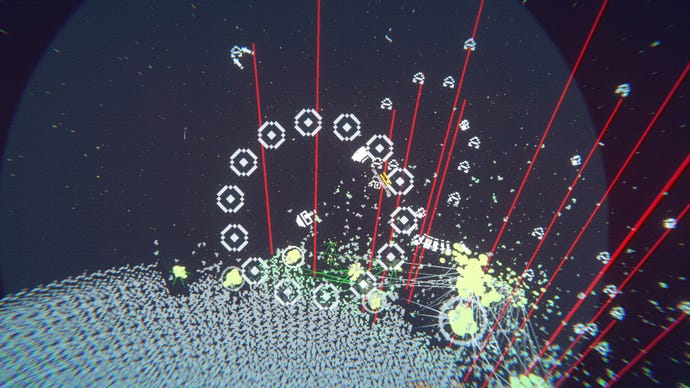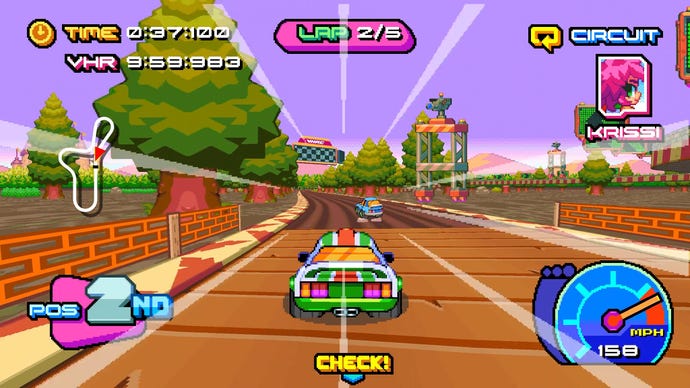My Selection Box picks are of three games that I did not vote for in the Advent Calendar. Two of them didn’t come out this year, which is an easy disqualification, but the reality is that I also don’t think any of them truly deserve a place in one of those hallowed chambers.
Yet all three are games that in some way defined my year, and I feel affection for each of them. Let me explain why.
To The Core

I’ve mentioned “incremental games” to a few games journalists this past year, and most hadn’t heard the term before. As far as I know, it’s a recent and understandable attempt to rebrand certain “idle games”, to better communicate that most under that label do require at least some interaction from players.
To The Core is a good examplar. On each sortie to a planet surface, you’re challenged to drill towards its center, but you can and must steer your craft if you’re to maximise your chances of success. There are decisions to make about what minerals to pursue, which upgrades to purchase, which planets to visit next – and there is failure, however modest, as a stick to measure your progress upon. It’s light touch, but the feeling is akin to what might happen if ’00s PopCap created an RPG. It’s certainly an ode to joy, as your screen fills with the spectacle of pixel art explosions and you turn into a computer-juddering wave of death, auto-firing missiles and orbital lasers and grenades like an interstellar vampire survivor.
Is this junk food? Personally, I’d argue that the dopamine rush of lootboxes and gambling mechanics are the fast food of video games. To The Core and its incremental peers – (the) Gnorp Apologue, as another example – feel more to me like the Huel of video games. They technically contain your daily doctor-advised amount of video game, delivered with maximum convenience, but they won’t nourish your soul.
Victory Heat Rally

I regularly try new retro racers, each one attempting to ape one era of racing games’ past or another. Most fail to capture my interest for longer than a few minutes, because even when following the treadmarks of others, it’s harder than you’d think to create an interesting, satisfying handling model.
Victory Heat Rally manages it thanks to its simple implementation of drifting. Hold down a button when heading around a corner and you’ll lean into a drift; do this for long enough and you’ll fill a meter that gives you a boost of speed as you leave the corner. There’s maybe finesse to this manouver that I’m not accessing, but I enjoy it because I don’t need that finesse. I can drift and boost on every bend and it feels good every time.
This has made VHR this year’s equivalent of Horizon Chase Turbo for me, in that I keep booting it up for a quick ten minutes of racing on Steam Deck. I saw a lot of people praising Parking Garage Rally Circuit this year, but the speed boosts and vibrant sprite work of Victory Heat are more my style. That said, the dialogue is pretty dire, and I’d give anything to remove the before-race banter entirely.
Fall Guys

There’s no way I can argue that this was “Fall Guys‘ year”. The inflatable, It’s A Knockout-style multiplayer game feels past its prime, even as it launches on mobile and receives updates designed to make it friendlier to newcomers.
But who cares? I play Fall Guys with my son, who has been full-on obsessed with the game for nearly two years. It occupies a space in our life similar to Jenga or table tennis, and neither of those games have had substantial live service updates this year either. No, Fall Guys keeps us coming back because it’s fun, competitive, and child-friendly, with less violence or pay-to-win or other predatory monetisation than many of its peers.
Fall Guys has become a perennial in my life in a way that I never could have predicted. I can’t argue that it should be in the Advent Calendar, but it deserves some recognition for all the joy it’s given me.










Add comment